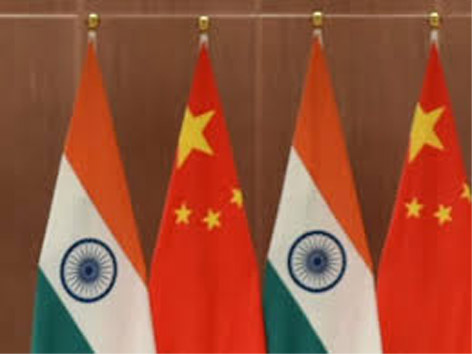Washington, May 28: China’s new “muscular” policy will have an impact on its ties with India and other nations, a senior US diplomat has said, underlining that the world is finally recognising that Beijing is “pushing” a form of “problematic” governance.
The US is currently involved in a tense showdown with China on the issue of trade, the origins of the novel coronavirus pandemic, Beijing’s new security crackdown in Hong Kong and the communist giant’s aggressive military moves in the disputed South China Sea.
The actions China is taking “are going to have impact, and not just in – across the Straits”, Assistant Secretary of State for East Asian and Pacific Affairs David Stilwell told reporters at a news conference on Wednesday.
“It’s going to have impact in Southeast Asia, it’s going to have impact with its neighbour India, and others. This newly muscular and aggressive approach is going to make the defence minister’s job a lot harder,” he said.
Stiwell was responding to a question on the statement made by the Chinese Defence Minister General Wei Fenghe over the weekend that the Sino-US strategic confrontation has entered “a period of high risk” and “we must strengthen our fighting spirit… And use fighting to promote stability”.
Fenghe’s remarks came amid rising tensions between China and the US, and souring ties between Beijing and Taipei.
China views Taiwan as a rebel province that must be reunified with the mainland, even by force. China claims nearly all of the South China Sea, though Taiwan, the Philippines, Brunei, Malaysia and Vietnam claim parts of it.
Stilwell said the world is finally recognising that China is “pushing” a form of government that “many only now are beginning to recognise as problematic”.
“This most recent step from the National People’s Congress in walking away from its obligations with respect to Hong Kong only demonstrates that more clearly,” he said.
China on Friday last introduced the draft of a controversial national security law in Hong Kong in its Parliament to tighten Beijing’s control over the former British colony, in what could be the biggest blow to the territory’s autonomy and personal freedoms since 1997 when it came under Chinese rule.
Hong Kong, an economic powerhouse, is a Special Administrative Region (SAR) of China. It has observed a “one country, two systems” policy since Britain returned sovereignty to China on July 1, 1997, which has allowed it certain freedoms the rest of China does not have.
“The way they’ve done that is they are the Chinese Communist Party, but they know what that communist word – the baggage it brings, and so you hear them speaking a lot about socialism with Chinese characteristics. It just sounds nicer. But we need to get past the nice language and face what we’re up against,” Stilwell said.
“This is an authoritarian system. It prefers to negotiate with others on a position of strength using a might makes right stance both domestically with its own people and internationally, as I mentioned before, with economic levers and other things,” he added.
The diplomat said the recent events have shown that Beijing seeks more global prominence and they want that to go with their newfound wealth and economic help that they’ve been using.
“In the process, though, they’ve gained additional scrutiny,” he said.
In October 2017, the 19th Party Congress Work Report said China will move closer to the centre of the global stage. This process has moved their authoritarian system closer to the limelight as well, where many now have come to see what Xi Jinping’s, quote, governance idea looks like, and increasingly people don’t really like what they’re seeing, Stilwell said.
“So we’re all faced with an authoritarian government that we thought had been relegated to history,” he said. (PTI)


